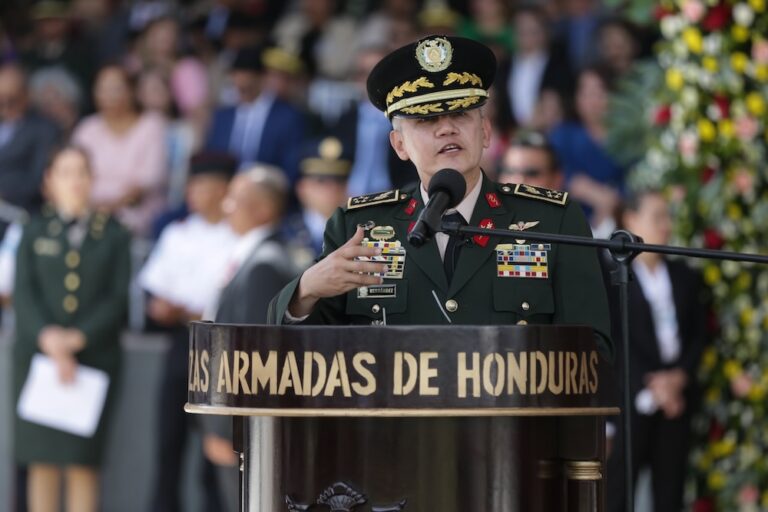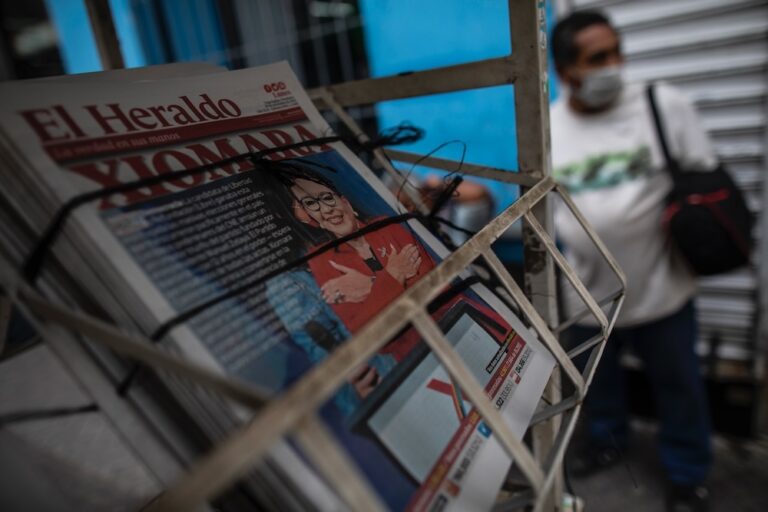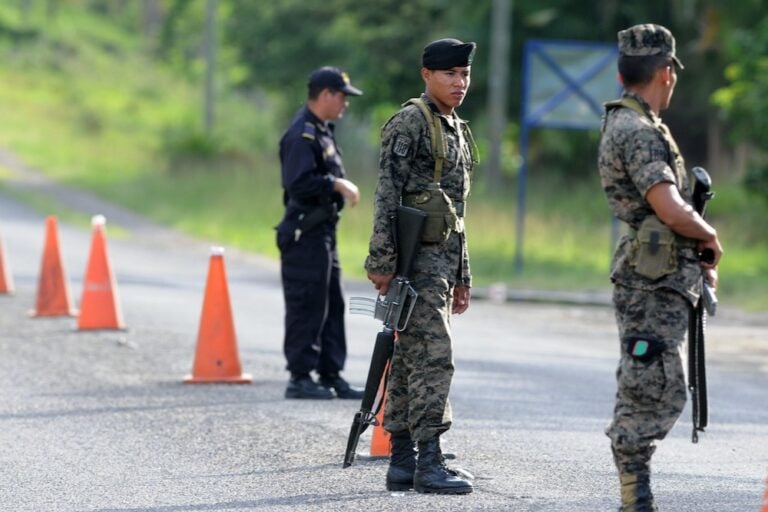Ricardo Oviedo and Jorge Ott Anderson had both covered the March 2010 murder of colleague Nahúm Palacios Arteaga in the Aguán region.
(CPJ/IFEX) – New York, May 4, 2010 – The Committee to Protect Journalists urged Honduran authorities today to thoroughly investigate death threats against two television reporters who covered the March murder of colleague Nahúm Palacios Arteaga in the region of Aguán.
Ricardo Oviedo, a reporter for the cable TV station Channel 40 in the city of Tocoa, Colón state, has received threatening messages in the last week, according to press reports and a CPJ interview. On Thursday, two unknown individuals approached Oviedo’s 13-year-old daughter as she was walking to school and told her that they would murder her father, Oviedo told CPJ.
On April 26, unknown individuals fired several gunshots in front of the reporter’s house, the Tegucigalpa-based newspaper La Tribuna reported. Gunshots were also fired on April 10 at the premises of Channel 40 after Oviedo aired a report on a routine police operation in Aguán, the journalist said.
Oviedo said he has also received several anonymous phone calls to his house and office warning him to be silent. “If you don’t, we will kill you,” the anonymous callers said, according to Oviedo. He has filed a complaint with local police.
Jorge Ott Anderson, a journalist and owner of the cable TV station La Cumbre in the town of Bonito Oriental, Colón state, was threatened during a call-in show on April 18, he told CPJ. “An unidentified individual called me on the air and said that they would kill me soon,” Ott said. The journalist reported the threats to local human rights groups but said he has not filed a police complaint.
Oviedo and Ott reported on the murder of their colleague Nahúm Palacios Arteaga, who was killed in Tocoa on March 14. Palacios, who had been critical of the coup that ousted former President Manuel Zelaya in June 2009, reported on land disputes in Aguán shortly before his murder, CPJ research shows. Oviedo and Ott have also covered the land conflict.
“These death threats are chilling in a country where six journalists have been killed in the past two months,” said Carlos Lauría, CPJ’s senior program coordinator for the Americas. “The Honduran authorities must treat any threat against a journalist with the utmost seriousness and investigate it thoroughly.”
In addition to Palacios, five journalists have been killed in Honduras since March in a wave of deadly violence. An unidentified gunman shot to death journalist Jorge ‘Georgino’ Orellana in the city of San Pedro Sula, on April 20. Unidentified attackers gunned down Honduran journalists José Bayardo Mairena and Manuel Juárez in the province of Olancho on March 27, while radio reporter David Meza was slain in the city of La Ceiba on March 11. Reporter Joseph Hernández Ochoa was killed in Tegucigalpa in a shooting that left another journalist seriously wounded on March 1. CPJ is investigating each of the cases to determine whether the killings were work-related.
Honduran authorities have not disclosed leads or identified suspects in any of the investigations, according to local news accounts. Minister of Security Óscar Álvarez has been quoted repeatedly in local press reports as saying that the killings were not related to the journalists’ work. He has not cited evidence to support the assertion.
“It is irresponsible to claim that these murders are not related to journalism without providing any evidence,” CPJ’s Lauría said. “Officials must focus their efforts on investigating these crimes and successfully prosecute those responsible.”


